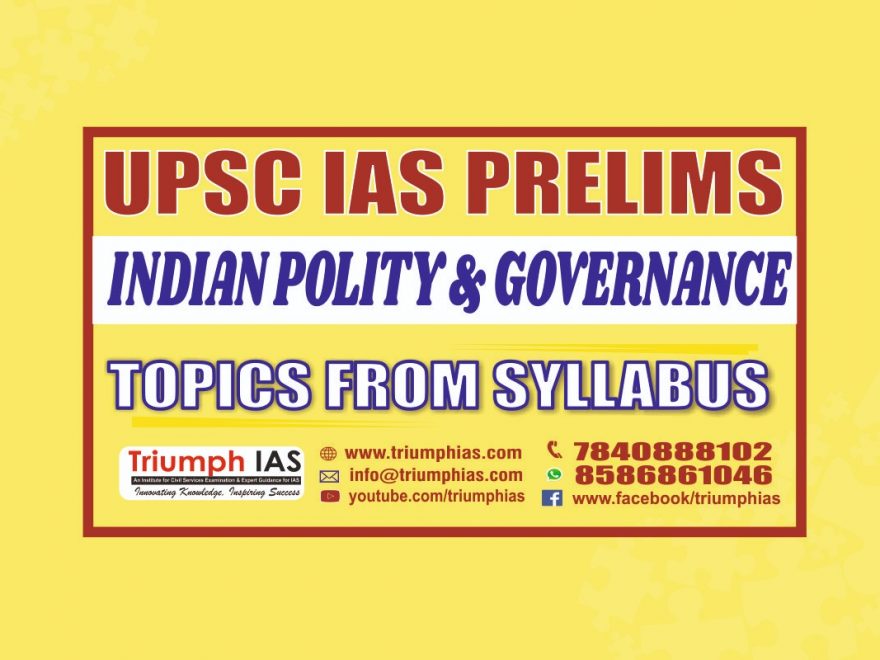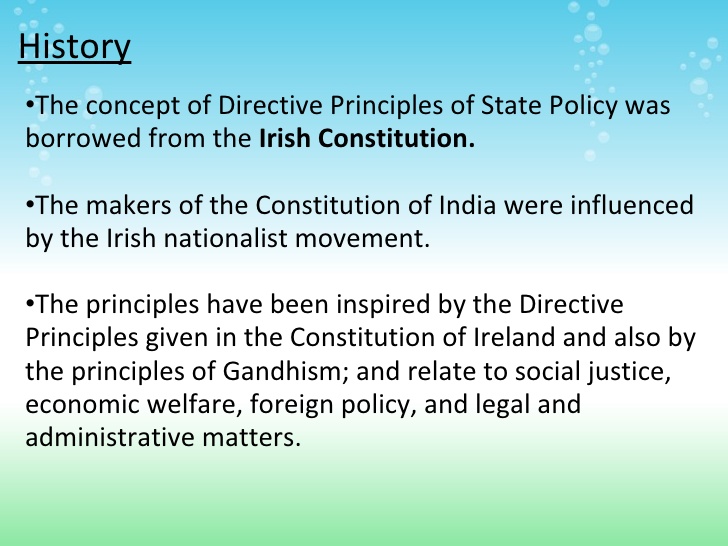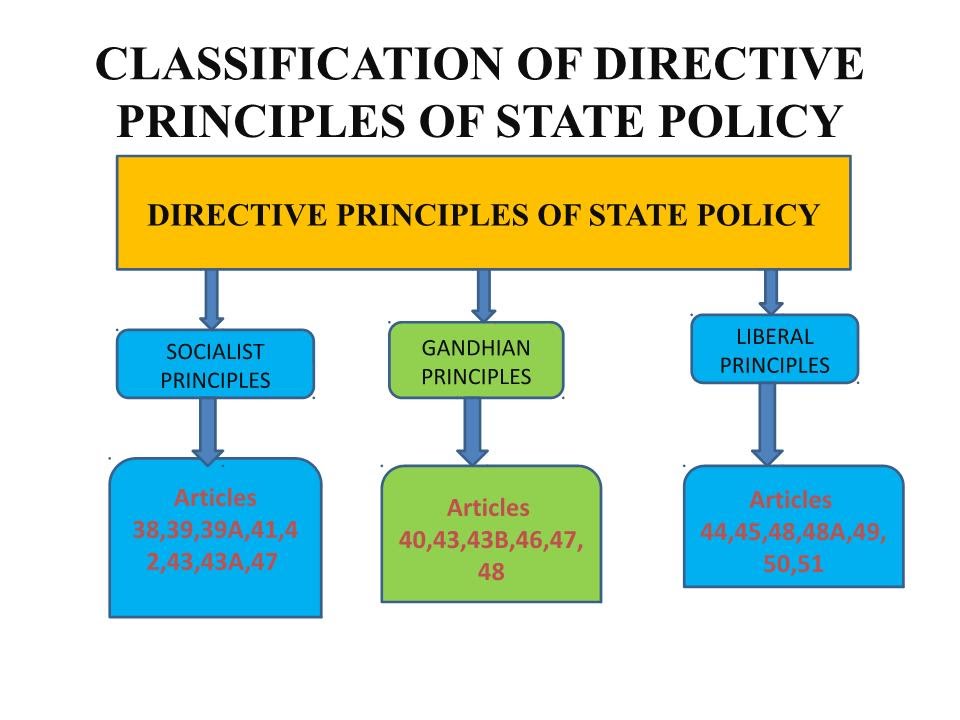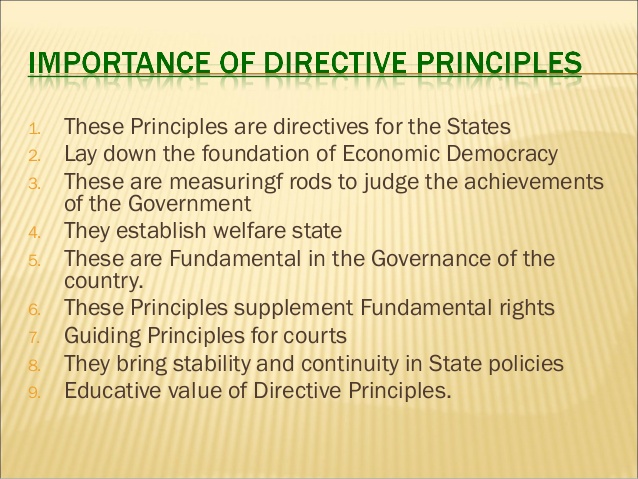Relevance: Prelims: Polity: Indian Constitution
- The Directive Principles of State Policy are contained inPart IV, Articles 36-51 of the Indian constitution.
- The idea of directives being included in the constitution was borrowed from the constitution of Ireland.
- The fundamental rights and the directive principles have a common origin but are differentiated on grounds of justifiable and non-justifiable rights respectively.
- Basically, the idea is that the “state” should keep these DPSPs in mind while framing laws, policies, ordinances etc.

They are basically a code of conduct for the legislature and administrators of the country.
►DPSP CLASSIFICATION
The Directive Principles may be classified into 3 broad categories—Socialistic, Gandhian and Liberal-intellectual.
SOCIALISTIC
Principal among this category of directives are:
a) securing welfare of the people (Art. 38)
b) securing proper distribution of material resources of the community as to best sub serve the common-good, equal pay for equal work, protection of childhood and youth against exploitation. etc. (Art.39),
c) Equal justice and free legal aid (Art. 39A, added by 42nd Amendment
d) securing right to work, education etc. Art. (41)
e) securing just and humane conditions of work and maternity relief (Art. 42) etc.
f) Participation of workers in management of industries (Art 43A, added by 42nd Amendment)
g) Promotion of Co-operative societies (Art 43B, added by 97th Amendment)
GANDHIAN
Principal among such directives are:
a) to organize village panchayats (Art. 40),
b) to secure living wage, decent standard of life, and to promote cottage industries (Art.43),
c) to provide free and compulsory education to all children up to 14 years of age (Art. 45),
d) to promote economic and educational interests of the weaker sections of the people, particularly, the scheduled castes and scheduled tribes,
e) to enforce prohibition of intoxicating drinks and cowslaughter and to organize agriculture and animal husbandry on scientific lines (Arts. 46-48).
LIBERAL-INTELLECTUAL
Principal among such directives are
a) to secure uniform civil code throughout the country (Art.44),
b) Protection and improvement of environment and safeguarding of forests and wildlife (Art48A, added by 42nd Amendment)
c) to separate the judiciary from the executive (Art.50),
d) to protect monuments of historic and national importance, and
e) to promote international peace and security.
For more such notes, Articles, News & Views Join our Telegram Channel.
Click the link below to see the details about the UPSC –Civils courses offered by Triumph IAS. https://triumphias.com/pages-all-courses.php




